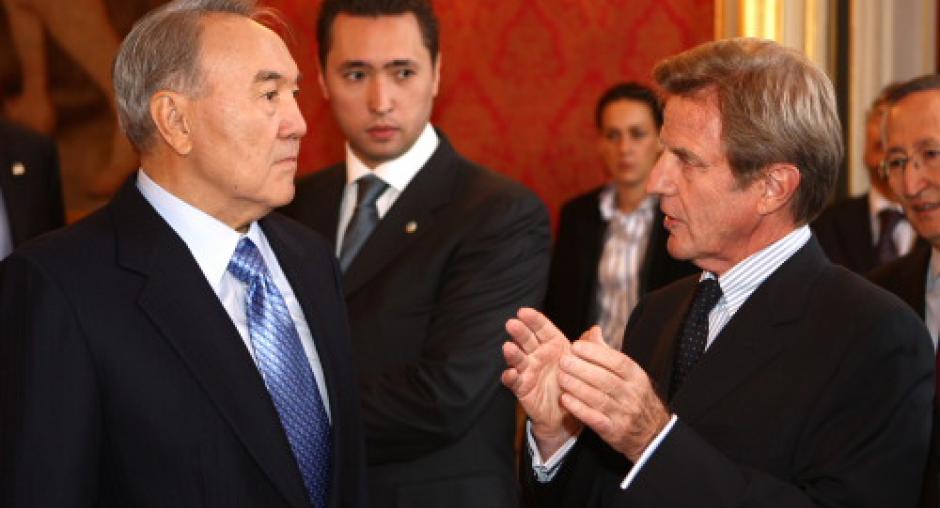OSCE event participants say Paris Charter for New Europe relevant after 20 years, important for security community creation

PARIS, 28 October 2010 - Participants in a high-level event marking the 20th anniversary of the Charter of Paris for a New Europe today stressed the significance of the document for the history of the OSCE region and its importance for the future of Euro-Atlantic and Eurasian security.
The commemorative event was organized by Kazakhstan's OSCE 2010 Chairmanship and France's Ministry of Foreign and European Affairs.
"The Paris Charter for a New Europe, signed by the participants of the Conference for Co-operation and Security in Europe, signalled the end of the era of confrontation and division in Europe, and gave an impulse to the institutionalization of the CSCE and its transformation into the OSCE," said Nursultan Nazarbayev, the President of Kazakhstan, which holds the 2010 OSCE Chairmanship, in his keynote speech.
The Charter was signed at the Paris Summit of the CSCE in November 1990, which followed the 1975 signing of the Helsinki Final Act. Thirty-four participating States, including a recently reunited Germany, took part in the Paris meeting.
"The Paris Charter represented a unique moment in the history of Europe, when all key actors agreed on principles to create an indivisible space of common security," said OSCE Secretary General Marc Perrin de Brichambaut. "The Charter offered a coherent vision and a set of rules rooted in the Helsinki Decalogue, and reflected the new region-wide consensus that democracy, the market economy and the rule of law were universal and inviolable principles to be respected throughout that space."
"Instead of offering a conventional 'peace treaty' to end the Cold War, the Paris Charter gave us a perspective of the European society of the future. Its ideas still constitute a unique framework for the processes taking place among and within the OSCE participating States," de Brichambaut said.
Nursultan Nazarbayev stressed the relevance of the rapprochement between the East and West based on the values embodied in the Charter as a way towards a single democratic Europe. He emphasized the need for an all-encompassing approach to security through the implementation of the "concept of Euro-Atlantic and Eurasian security covering all dimensions of the OSCE work". This concept is to be discussed at the OSCE Summit in Astana in December, the first highest-level meeting since the Organization's 1999 summit in Istanbul.
"At the Astana Summit, the leaders of the OSCE participating States, based on their firm political will, are to identify new strategic directions and a 'roadmap' of our progressive advancement from the concept of space of security 'from Vancouver to Vladivostok' to the creation of a true Euro-Atlantic and Eurasian community of indivisible security based on shared values, principles and commitments." Nazarbayev said.
Former French Foreign Minister Roland Dumas; former German Foreign Minister and the CSCE's first Chairperson-in-Office Hans-Dietrich Genscher, and former French President and one of the signatories of the Helsinki Final Act, Valéry Giscard d'Estaing, took part in today's event.
Before signing the Paris Charter, participating States took part in the Bonn Conference on Economic Co-operation in Europe, where they expressed their commitment to market economic principles, and signed the Vienna Document, which provides for annual exchanges of military information. In addition, 22 CSCE participating States signed the Treaty on Conventional Armed Forces in Europe (CFE) shortly before the meeting in Paris.
